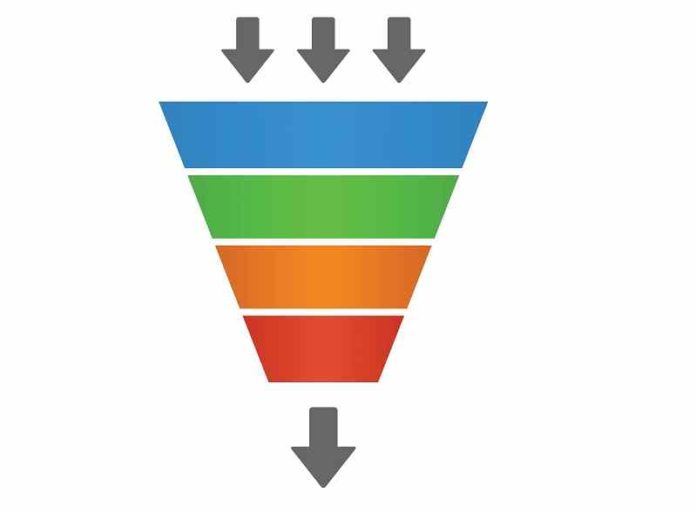Sales funnels are one of the most hotly debated topics amongst marketers in the digital marketing industry. All you need to do is search the term “sales funnel gimmick” online, and you’ll immediately see a swirl of headlines debating the legitimacy of automated sales funnel services.
By Andrew Oziemblo
Because there are so many “gimmicky” sales funnels out there claiming to work instant miracles for any business’ marketing efforts, it can be easy to be skeptical about whether or not they actually work. However, the underlying science of sales funnels is actually quite sound, with many companies finding marketing success after creating their own funnels.
For those who are new to marketing or sales funnels and are unclear on what they actually are, here’s a quick overview: Sales funnels are a series of steps in a long sequence that marketers create to convert prospects into buyers. Effectively structured sales funnels will filter your audience, attract your ideal clients, attain their contact information, and lead them to a place of making a final decision now or at a future date.
It all seems simple enough — so why are sales funnels so often seen as gimmicks or scams?
In recent years, there has been an onslaught of “quick sales funnel” solutions which often promise businesses huge results in a short amount of time, or convince buyers that the software is a one-size-fits-all solution that will work like magic. Sadly, the vast majority of these products are nothing more than a marketing tool without any proven benefit to the end user. As you can imagine, there are plenty of regretful buyers and reviews in the wake of such encounters, as they offer very little (if any) real value. But the truth is, sales funnels are important, and they do work — if you build them correctly and with the right people.
The Art of the Successful Sales Funnel
There is both a science and an art to executing a sales funnel in a way that is professional and valuable — when done right, it hardly seems like a sales funnel at all. There is tremendous value to be gained by distilling a vast amount of prospects into several groups matched to the various products and services you offer. This allows you to direct the right products and services to the correct target market, thereby eliminating frustration from your buyers and improving how you direct your marketing resources at the same time.
Typically, the biggest advantage gained from a well-executed sales funnel (besides the purchase itself) is that it creates a bond between the buyer and seller. No matter what type of marketing you employ, you only stand to capture a small fraction of the viewers. However, what sales funnels allow you to do is to deliberately drive that audience through a structured sales process.
Sales funnels can be customized based on your strategy and business needs. However, the same process can be applied to each sales funnel: Converting prospects into contacts; contacts into leads; leads into finalists; and finally, finalists into clients. How is this done?
Many brands attract new prospects to their website through social media and PPC advertising. Once on the site, companies should offer plenty of gated content (meaning landing pages and exclusive content) in order to gain the prospect’s contact information. Once you have their contact information, you can enroll them in strategized email marketing campaigns targeted on what they might be interested in, based on the gated content they signed up to access on your site. The idea is that once you have the contact enrolled in marketing campaigns, you’ll warm them up to be a lead, then a finalist and finally, a customer.
Building your own funnel
Sales funnels work simply enough. However, building sales funnels is a different story. Because of the need to implement plenty of email campaigns, forms and landing pages on your website, you’ll end up requiring a large amount of technical coding and integration.
For the average marketer, this can all be overwhelming and sometimes downright impossible to do on their own. Luckily, there are plenty of new sales funnel building platforms and agencies out there willing to help you figure it all out. Of course, this will still take enormous effort on your part to put together the email sequences, results tracking, and gated content on your website. The good news is that successful sales funnels will ultimately end in not only sales, but also in instant ROI realization in the collection of leads’ contact information.
At the end of the day, despite the amount of work they take, sales funnels are worth the effort for businesses big and small. While you should be wary of big, gimmicky platforms that claim they’ll transform your business in a month, there are still plenty of platforms worth trusting that can help you build and execute your sales funnel strategy and process — so you can focus on building your business.
By Andrew Oziemblo, Founder & CEO of RankOne Marketing, the digital marketing & SEO agency helping businesses achieve long-term growth goals.
Sales funnel stock photo by Martial Red/Shutterstock







